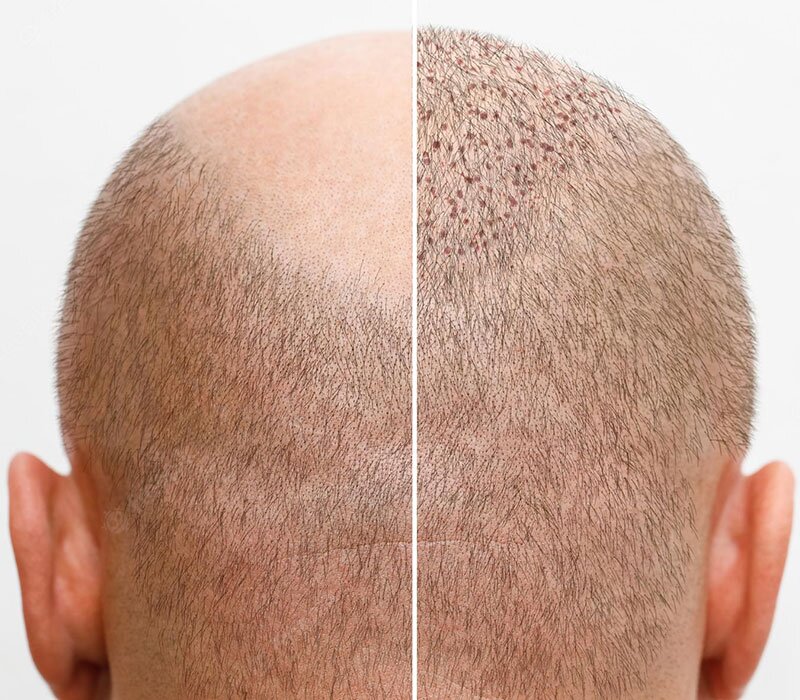Hair Transplant The Ultimate Guide to Restore Lost Hair
A receding hairline specifically hair loss, is often associated with ageing. Androgenetic alopecia also known as male-pattern hair loss is the most common hair loss syndrome in males. Although it is predominantly influenced by the genetic factors of an individual, it is also affected by certain male hormones. It can affect any gender.
This type of hair loss isn't the sole cause for concerns of thinning hair. Many diseases and deficiencies might induce hair loss too. These issues are often medically induced. Notably, psychological conditions can also contribute in hair loss. The role of mental health should not be underestimated. Poor diet is a catalyst that often goes unnoticed. Adequate nutrition is essential yet frequently overlooked in hair health discussions.
Hair Transplantation: Restoring the Lost Hair Volume
Hair transplantation serves as a revolutionary strategy for restoring the missing hair. Yet it does not serve as a remedy for hair thinning or loss. Medical interventions are recommended for these specific situations.
Modern methodologies are employed in the realm of hair restoration. These encompassAdditionally various other techniques have also been discovered and are into the play. Techniques including scalp reduction, strip grafts and flap procedures are included. These treatments under suitable circumstances, frequently guide in achieving satisfactory results.
Hair Transplantation Center in Delhi
The best hair transplant center in delhi showcase a myriad of approaches. Follicular or individual hair transplants are chief among these. One specific method is increasingly admired. This particular technique is Follicular Unit Extraction (FUE) method.
FUE imparts a remarkably natural look. It can be administered under local anesthesia. It allows for a day-care basis procedure. There is no need for hospitalization.
Key Hair Transplant Techniques Offered by CAPS in Delhi
CAPS Delhi (Center for Advanced Plastic Surgery), the comprises of the under elaborated hair transplant surgery procedure in south delhi.
1. Follicular Unit Transplantation (FUT):
CAPS Delhi offers these state-of-the-art hair transplant techniques performed by the experienced, mastered and the best hair transplant surgeons in delhi. They stand to fullfil their word of mouth. They provide intricate, well wovena and personalised care approach to yield the desired outcomes for their patients.
Indications for Hair Transplantation
Factors Influencing the Best Hair Transplant in Delhi
The best hair transplant surgery center will exhibit the following features -
Frequently Asked Questions
It depends on the patient’s attitude towards his receding hair and his expectations. One should not wait till complete baldness before having a transplant. Frontal area transplant for receding hairline is most commonly performed in younger individuals who are not completely bald as yet. Second sitting may be added in future for more baldness patches as they appear.
The transplanted hair will grow for as long as the hair of the donor site from which it has been harvested. In most cases it will last a lifetime. But patient may experience thinning in density as the original hail continue to shed.
If more than one session is planned it is usually at 3 to 4 months intervals if the same area is being transplanted. With refinement in the technique usually one area does not require second session. Second session is mostly needed for separate area. If different areas are being treated the time interval may be much shorter. There is no maximum interval between sessions.
This is dependent on the size of the donor area. Mega sessions can be planned if donar area is sufficient. But it is usually safer to split sessions in two stages if the area is large.
Although the use of laser light as a scalpel for hair transplantation is used as a marketing tool, it is not a preferable method as the head generated by laser hampers in blood supply to the grafted follicles.
Hair loss can be camouflaged. Numerous methods exist to camouflage hair loss. Wigs and hair pieces differ immensely in cost, durability, maintenance requirements, and quality. Some are fixed to the skin with glue, others are simply placed on the head. Hairpieces should be chosen with care to ensure that the color of the hair matches, the hair has a natural texture and look, and it fits properly. The slightest discrepancy in any of these factors will make the hairpiece noticeable, and an obvious hairpiece looks far worse than a bald head.
Hair weaving is another camouflage option. In this method, hair, usually of human origin, is matched in color and texture to the individual’s own hair, then woven or knotted to it. This method works especially well in a small area. The advantage of hair weaving is that it stays in place during vigorous activity, as well as in the water. The disadvantage is that it requires frequent adjustments because as the hair to which it is attached grows, the knots loosen up, and the woven hair lifts away from the head. Irritation of the skin under the woven hair is common, whether or not the hair used is real or synthetic.
Schedule A Virtual or
Presential Appointment Today
Free Consultations! call +91-7291939393
Fill in our quick Appointment Form. We will schedule your Appointment.

